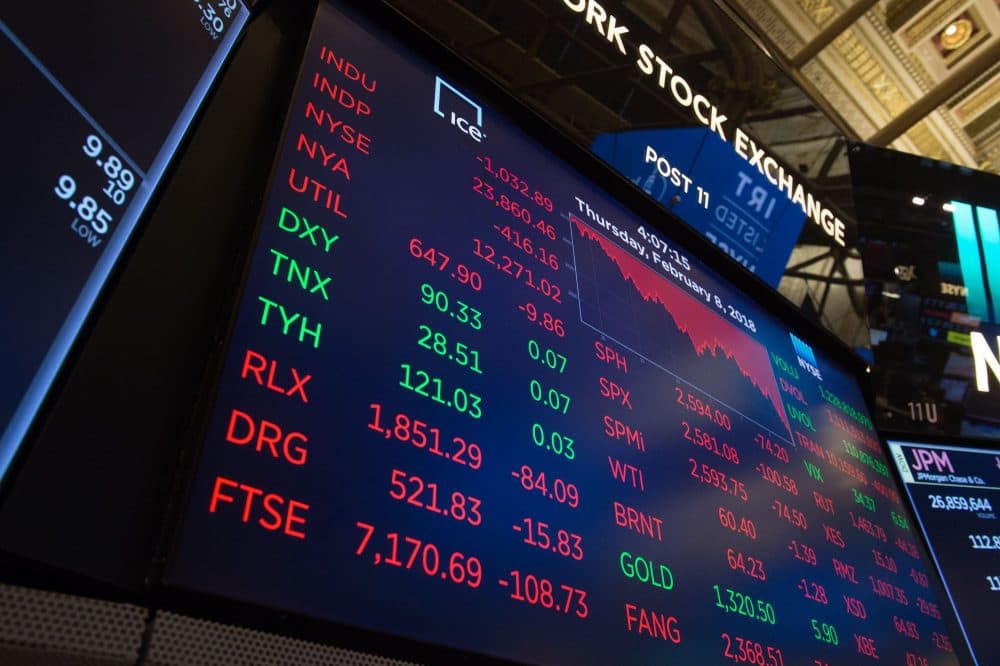Advertisement
Freaking Out About The Stock Market? Don't.

The Dow Jones Industrial average has had a rollercoaster of a week. A historic drop Monday — and then back up again. And then another 1,000 point loss on Thursday, only to open up Friday 300 points up.
Michelle Singletary, a personal finance columnist for the Washington Post, reminded us on our Wednesday show to keep calm.
“Just don't panic and do something right now,” Singletary told On Point guest host Indira Lakshmanan.
We were also joined by Robert Shiller, Nobel Prize winner and professor of economics at Yale University, Sung Won Sohn, professor of economics at California State University, Channel Islands, and Binyamin Appelbaum, a New York Times Washington correspondent.
For the full show, click here.
Singletary, for her part, said she understands that regular people just trying to save for retirement will worry, and that she’s right there with them.
“Stay the course, feel what you feel, but know that your feelings aren’t facts,” she said.
Singletary said that people should come up with a plan that is comfortable enough for them to sleep at night.
What’s not a good idea is to pull back from investing at all, Singletary said. Just keeping all of your money in a savings account won’t even keep pace with inflation, meaning you’re losing money as it sits there. People should absolutely put their money into the market - and be as diversified as possible - in order to see it grow.
In a response to a caller — a 64-year-old teacher wondering about retirement — Singletary did not recommend the general advice of putting all of her money into bonds, because there is still time for her money to grow.
“All these rules of thumb are great in the abstract but you need to figure out individually what is good for you and what you can stomach,” she said.
When Singletary works with people financially, she finds that people are way too conservative with putting money towards retirement because they’re afraid of losing it, but then when they get to retirement age they’re far too aggressive.
Another caller, Devin from Somerville, Massachusetts, said that when he invests he also looks into whether or not that company is doing something for society that he agrees with. He considers the ethical implications of his investment as well as what will bring the biggest returns.
“This is a time to look at your entire picture including where you want your money,” Singletary responded, “He’s talking about social investing. This is your money. Do you want to support certain companies, certain industries?”
Other factors include how much debt you have, whether or not you’re going into retirement with a mortgage, and if you have savings you can pull from, Singletary said.
“This is one of those times where you have to listen to your head and not your heart,” Singletary said.